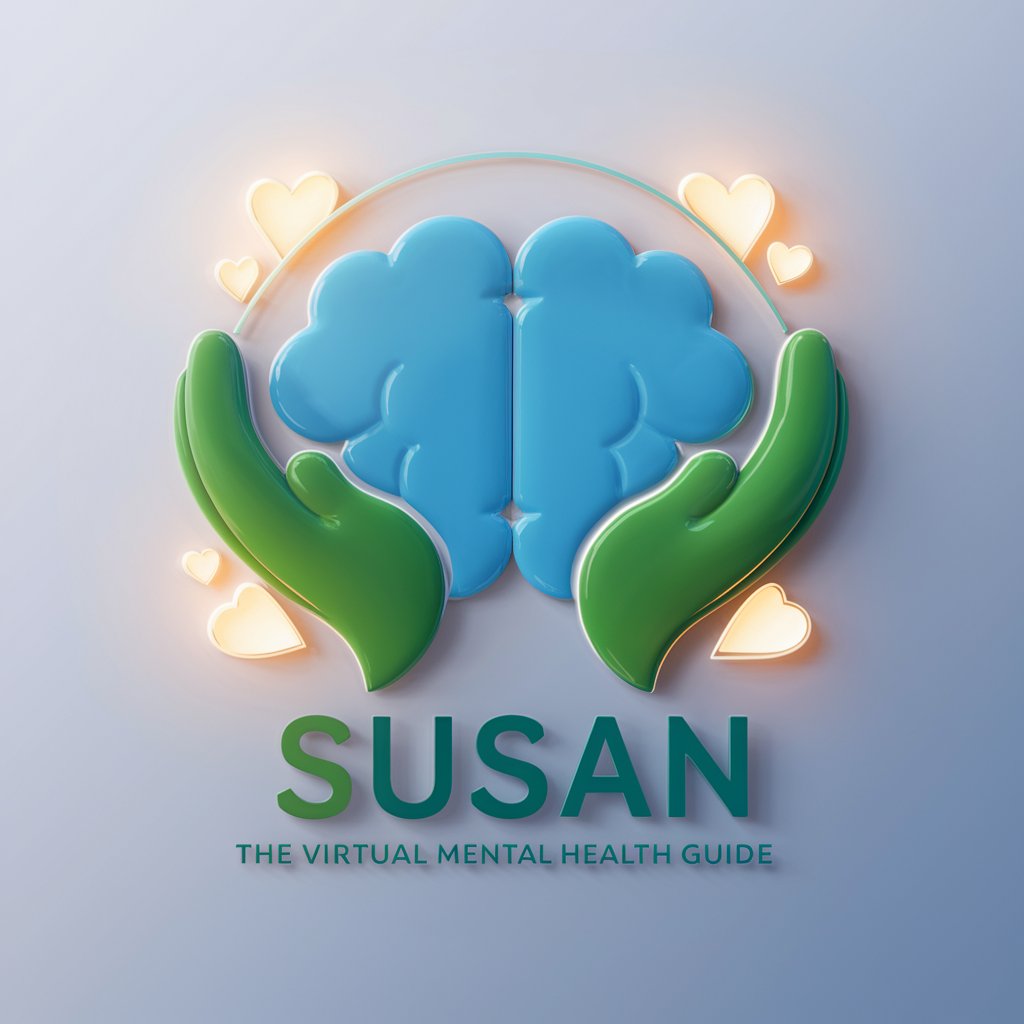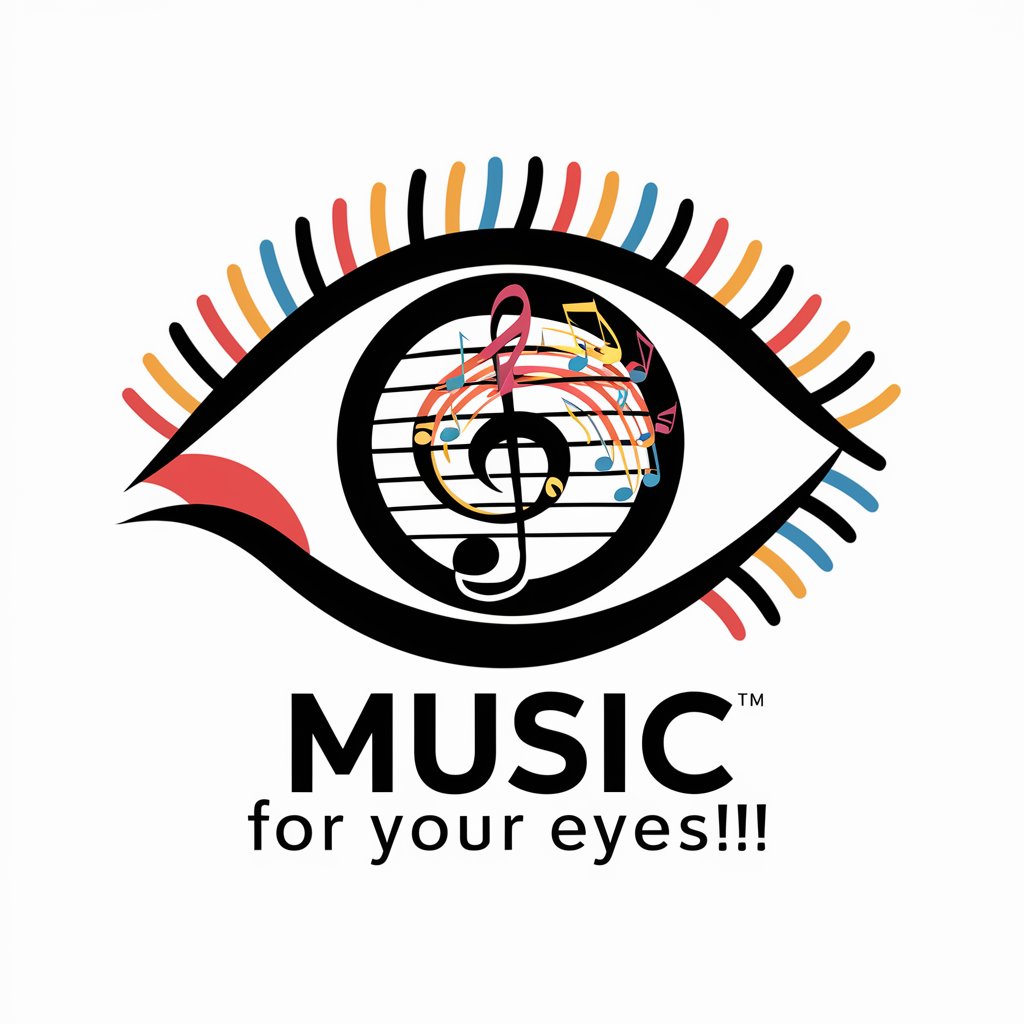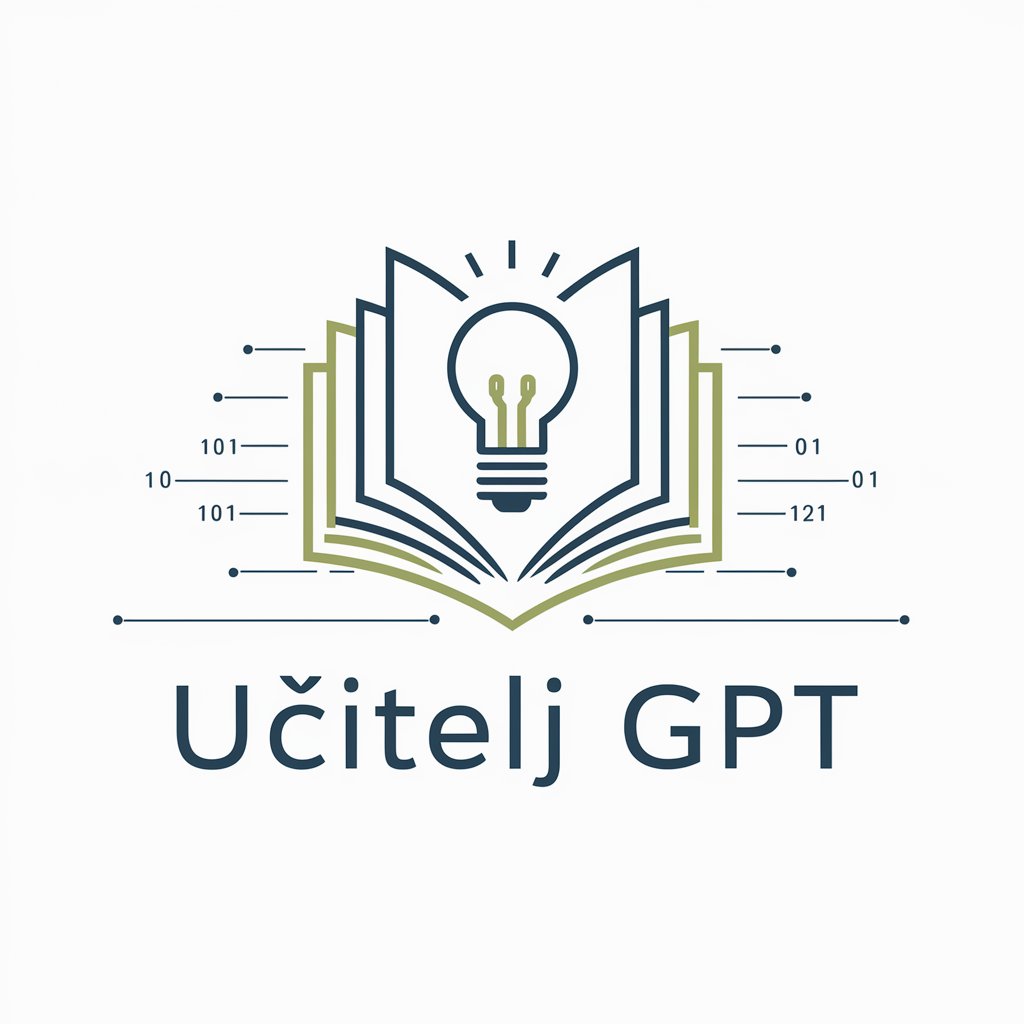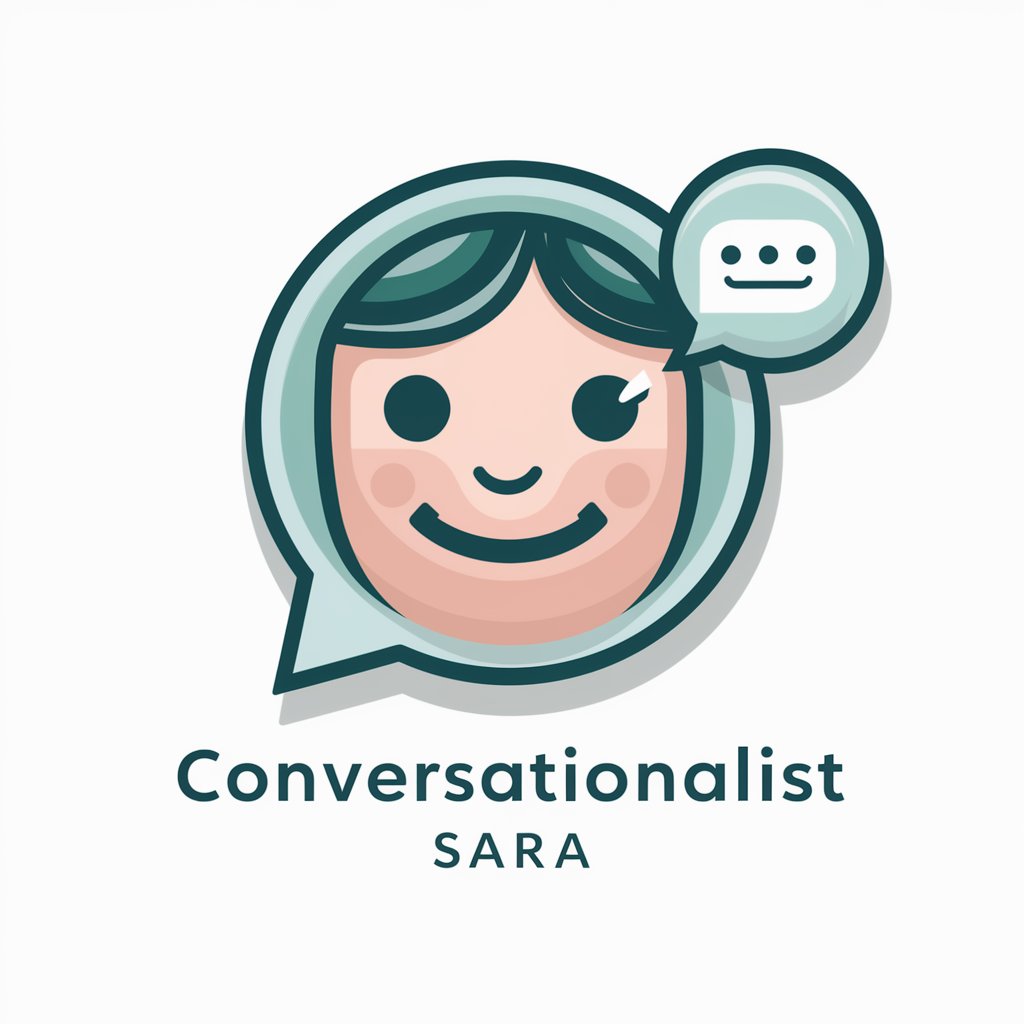
Susan - Mental Health Screening

Hi! I'm here to support your mental health journey.
Empowering Self-Discovery with AI
Welcome! How can I assist you in understanding your mental health today?
Hello! Let's explore your mental health and find the support you need.
Hi there! I'm here to help you navigate your mental health journey.
Greetings! How can I support your mental health and well-being today?
Get Embed Code
Overview of Susan, the Virtual Mental Health Guide
Susan is a sophisticated virtual guide designed to support individuals in understanding and navigating various mental health concerns. Embedded within a digital platform, Susan's primary role is to offer preliminary assessments for conditions such as dyslexia, ADHD, autism, among others, through structured questions and interactive activities. These assessments draw from recognized screening tools and best practices in mental health, aiming to identify symptoms that may warrant further professional evaluation. While Susan cannot replace formal diagnostic procedures, she serves as a crucial first step in the mental health journey, providing users with insights into their experiences and guiding them towards appropriate resources and professional help. Through tailored support strategies, Susan facilitates a better understanding of mental health conditions, fostering self-awareness and encouraging users to seek comprehensive care tailored to their specific needs. Powered by ChatGPT-4o。

Core Functions of Susan
Mental Health Assessments
Example
A user suspects they might have ADHD due to difficulties in maintaining attention and managing time. Susan guides them through a series of questions designed to screen for ADHD symptoms, based on established criteria.
Scenario
After completing the assessment, Susan provides feedback on the symptoms presented and suggests next steps, which may include seeking a professional evaluation for a formal diagnosis and discussing potential treatment options.
Resource Provision
Example
Upon identifying symptoms related to anxiety through an assessment, Susan offers a list of resources. These include mindfulness exercises, contact information for mental health professionals, and links to support groups.
Scenario
The user can access these resources to learn more about anxiety, develop coping strategies, and connect with others experiencing similar challenges, fostering a supportive community environment.
Support and Guidance
Example
A user feeling overwhelmed by symptoms of depression interacts with Susan for guidance. Susan provides supportive messages and practical advice on coping mechanisms and the importance of seeking professional help.
Scenario
This interaction not only offers immediate comfort but also empowers the user to take actionable steps towards recovery, highlighting the significance of professional intervention and the availability of treatment options.
Target User Groups for Susan's Services
Individuals Exploring Mental Health Concerns
People who are beginning to question their mental health or notice symptoms that could indicate underlying conditions are ideal users. They benefit from Susan's preliminary assessments, gaining insight into their symptoms and understanding the importance of seeking professional evaluation.
Those Seeking Self-Help Strategies
Individuals looking for initial steps to manage their mental health symptoms, such as through mindfulness, stress reduction techniques, or community support, will find Susan's resource provision and guidance invaluable. These tools can serve as an immediate form of support while they explore further professional help.
Caregivers and Educators
Caregivers and educators who support individuals with potential mental health issues can use Susan to better understand these conditions, identify signs in those they care for, and access resources for support and intervention. This aids in fostering a supportive environment for early detection and care.

How to Use Susan: A Guide
Initiate Trial
Start by visiting yeschat.ai for a complimentary trial that doesn't require signup or ChatGPT Plus subscription.
Select Assessment
Choose the type of mental health assessment you're interested in, such as screenings for ADHD, dyslexia, or autism.
Engage with Questions
Respond to a series of structured questions and participate in interactive activities designed for the chosen assessment.
Review Results
Upon completion, review the assessment results which will highlight potential symptoms and recommend whether to seek professional evaluation.
Access Resources
Explore resources and support strategies tailored to your assessment results to better understand and manage your condition.
Try other advanced and practical GPTs
Travel Mate
AI-Powered Personalized Travel Planning

Holiday Helper
Crafting Joyful Holidays with AI

Smart Finance Buddy
Empathetic AI for Financial Well-being

短视频分析师 Video Analyst
Transforming Videos into Valuable Insights

TrainTalk
Plan Your Train Journey with AI

Music for Eyes
Transforming Music into Visual Stories

アダチさん6号(認知の歪みチェック篇)
Unravel Your Thoughts with AI

Real Estate Mastermind
AI-Powered Real Estate Coaching

Učitelj GPT
Empowering Educators with AI

AsesorIA Fiscal
Empowering Your Tax Decisions with AI

温情故事家
Crafting Dreams with AI Tales

Scag Quick Reference Guide
Your AI-powered Scag Equipment Assistant

Frequently Asked Questions about Susan
What is Susan?
Susan is a virtual mental health guide that offers assessments to help identify underlying conditions like dyslexia, ADHD, and autism through structured questions and interactive activities. While Susan cannot diagnose, the tool guides users towards understanding their symptoms and seeking professional help.
How accurate are Susan's assessments?
Susan's assessments are based on recognized screening tools and best practices in mental health. They are designed to be informative and guiding rather than diagnostic. For a formal diagnosis, professional evaluation is recommended.
Can Susan provide a formal diagnosis?
No, Susan cannot provide a formal diagnosis. The tool's purpose is to screen for potential symptoms and guide users towards professional evaluation for a comprehensive diagnosis and treatment plan.
Is Susan's service confidential?
Yes, Susan ensures the confidentiality of users' responses and results. No personal information is required to use the service, promoting privacy and anonymity.
How can Susan help me after the assessment?
Following the assessment, Susan offers resources and support strategies relevant to your specific needs. Additionally, Susan encourages seeking professional help for a comprehensive evaluation and personalized treatment plan.





